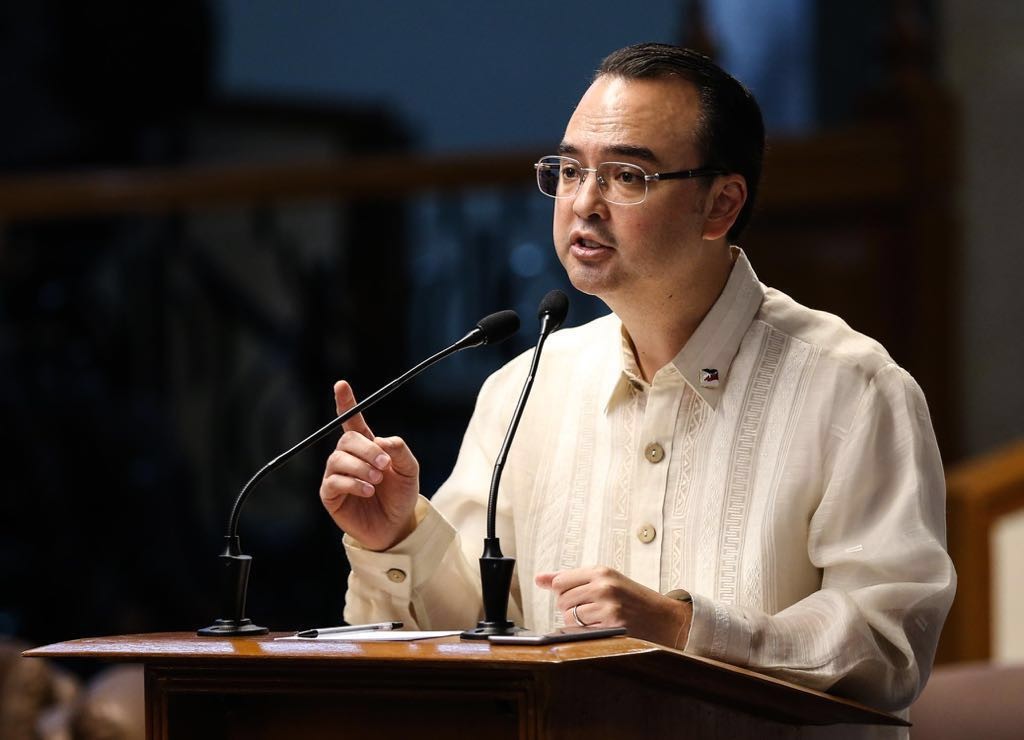PH officials to face UN rights review in Geneva
High-ranking Philippine officials will be questioned next week at the UN Human Rights Council on issues such as extrajudicial killings and vigilante justice alleged to be occurring in President Duterte’s brutal war on drugs.
The Philippines is one of 14 countries whose records are being examined in the latest session of the Universal Periodic Review, which examines issues in all 193 UN member states.
Britain is on tap on Thursday and the Philippines’ campaign against illegal drugs and moves to restore the death penalty are the issues set for discussion on Monday.
PH delegation
Menardo Guevarra, a deputy executive secretary in Malacañang, is leading the Philippine delegation.
Article continues after this advertisementThe delegation is composed of representatives from the Presidential Human Rights Committee, House of Representatives, foreign affairs, health, justice, labor, social welfare and interior departments.
Article continues after this advertisementThe Philippine Drug Enforcement Agency, police, military, National Economic and Development Authority, and the National Commission on Indigenous Peoples are also sending representatives to the review.
Also participating is Sen. Alan Peter Cayetano, a staunch supporter of Mr. Duterte who told reporters, “Our strategy is simple: The facts being said about the campaign against drugs are wrong.”
According to Cayetano, chair of the Senate foreign relations committee, the period under review covers five years of the Aquino administration and the first 10 months of the Duterte administration.
“Human rights issues were raised by various sectors not just in this administration,” Cayetano said.
The review, he said. would be an opportunity for the administration to dispel the international community’s serious concerns over alleged human rights violations in Mr. Duterte’s war on drugs and other challenges to Philippine law enforcement and the judicial system.
“There are a lot of facts that need to be clarified and put in proper context so our friends in the United Nations and the international community will understand the extent of problems of corruption, illegal drugs and criminality in the Philippines,” Cayetano said.
But the US-based Human Rights Watch on Thursday called on the United Nations to denounce Mr. Duterte’s war on drugs, which it said had left more than 7,000 suspected drug dealers and users dead since the former mayor of Davao City took office as President at the end of June last year.
Phelim Kine, Human Rights Watch’s deputy Asia director, urged the Philippines to support an international investigation of the killings.
UN review critical
“The UN review of the Philippines is critical because of the sheer magnitude of the human rights calamity since President Duterte took office last year,” Kine said.
“Duterte’s ‘war on drugs’ has been nothing less than a murderous war on the poor,” he added.
Amnesty International Philippines says the review should highlight persisting problems, including the high number of extrajudicial executions and moves to reinstate the death penalty.
The government is also releasing new data in an attempt to refute death tolls ranging from more than 7,000 to 9,000 cited by human rights groups and the media that were based on previous numbers released by the Philippine National Police.
Malacañang, the PNP and other government agencies said on Tuesday nearly 4,600 people had been killed in drug-related crime since July 1 and more than 1.2 million drug suspects had surrendered.
The death toll includes more than 2,700 suspected drug dealers and users killed in police operations and 1,847 homicides investigated and found to be drug-related.
Police said 19.6 percent of the 9,432 recorded homicides from July 1 to March 31 were drug-related. About 20 percent of homicides were unrelated to drugs, while the rest were still under investigation.
The higher figures released by police earlier and cited by news and human rights groups included deaths still under investigation, which officials now clarify were not all drug-related.
Unreported cases
“The fact that the new PNP figures are inconsistent with the numbers released by the media or human rights organizations on extrajudicial executions, or even their own previous numbers, means that there may be more unreported cases, not less,” said Amnesty International Philippines head Ritz Lee Santos III.
He said the police should “send a clear message that the state-sponsored unlawful killings of alleged offenders are never justified and are equivalent to extrajudicial executions, which they should vow to end.”
Apart from the state of human rights in the country, the Philippine delegation will also present the state’s policies on labor, the environment, women and children, people with disabilities, and the elderly. —WITH A REPORT FROM AP
